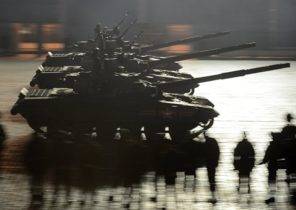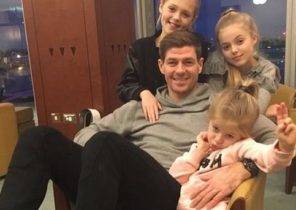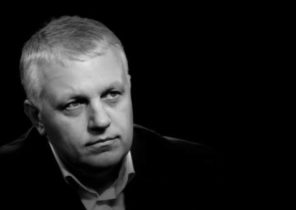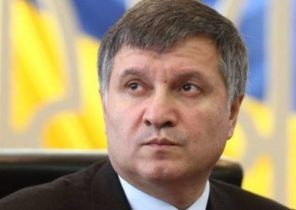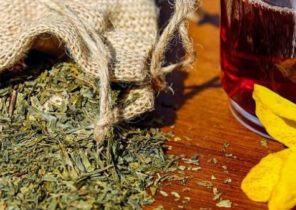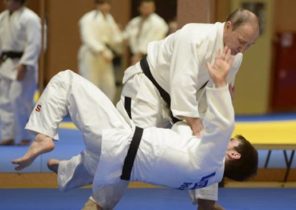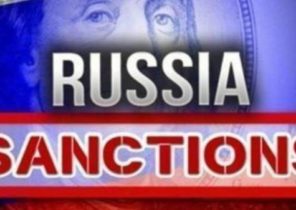Moscow — When, in February coronavirus began its silent, but ruthless attack on Moscow, state television showed a list of names of millions of Russian soldiers who died in the terrible events of the Second world war, which led to much more numerous casualties. The names of the victims one by one mournful stream flowing down the screen.
The Kremlin has pronounced soothing speech about the pandemic, stating that Russia does not suffer. Therefore, the screen is still day by day as a sign of mournful memory of the Russian martyrs of the war floated lists with lightning speed — more than six thousand names per minute.
But at the end of March, when to gloss over coronavirus crisis was no longer possible, these names have suddenly disappeared from the TV screens. Russia woke up from my glorious and grim memories of the red Army’s victory over Nazi Germany achieved 75 years ago, and came face to face with an insidious enemy, who crept closer and became more and more dangerous.
Pandemic broke into Moscow with all the power just at the moment when the Russian capital was preparing to celebrate the ninth of may, Victory Day, the annual bright holiday filled with joy and pride for the country that is celebrated outside the many regions of Russia. Because of this timing, the city was in an unusual state of expectation and uncertainty.
A Grand celebration was canceled, but in honor of a great holiday, this tranquil and yet inviting in its beauty the city were adorned with and decorated. On each silent street, waving red banners — copies of banner, raised in 1945 in Berlin over the building of the Reichstag. On billboards at the closed theatres can learn about the planned Patriotic concerts, performances and song festivals, none of which will take place.
Saturday is still expected to conduct an air parade with participation of military aircraft and helicopters, but the mayor of Moscow Sergey Sobyanin has asked residents not to leave the house to watch the parade. State television, which almost all of its daily newscasts are now devoted to virus, late in the evening from time to time again show the lists of the war dead.
On the orange cars, which leave on streets of Moscow, to water them with disinfectant and water, are the stickers reminding cancelled the celebrations of “Victory”.
On the streets cruising police cars, of which the speakers sounds continuously recorded message: “Dear citizens! We ask you not to leave home without having. Take care of your health and avoid infecting the citizens”.
In accordance with the restrictions announced in March by mayor Sobyanin, the city had introduced more severe isolation than quarantine imposed in new York and London. Closed all parks, restaurants, and shops, except food stores, pharmacies and outlets which sell commodities.
The rules, announced just at a time when Moscow came after a chilling cold long winter, include a ban on movement around the city for all, with the exception of pet owners allowed to walk their dogs within 100 meters from their homes.
In a country whose citizens had a long history of legal nihilism, calls the mayor to stay home, expected results will bring. After all, Russia is a country where, according to folk wisdom, “the severity of the laws kompensiruet the optionality of their execution” and “if you can not but really want, you can”.
However, the majority of Muscovites more or less follow a regime. The fact that the threat was real and not just another propaganda move designed to keep out protesters on the streets or cause a rage in the West, it became clear in late March. It was then that President Vladimir Putin has postponed a referendum on the amendments to the Constitution that would allow him to remain in power until 2036.
If Russia had registered only 658 cases of infection with coronavirus infection, but Putin, speaking from his country residence, declared that completely block the penetration of the virus into the country “objectively impossible.” Currently in Russia revealed more than 187 thousand cases of the disease, and for six consecutive days, the number of cases daily increased by more than 10 thousand people.
A huge propaganda machine, designed to trumpet the triumphs of President Putin, basically changed the subject. On the street near the house where I live, on the illuminated Billboard, which at this time of year is usually a poster dedicated to the victory in 1945, now we see the picture of the chief doctor of the Moscow medical centre where they treat patients with coronavirus. “Stay home! — warns the doctor, although he himself analysis for coronavirus was positive. Is now the safest place.”
Covered country fever Muscovites, in any case, those who have a dacha (a country house, the level ranging from huts to palaces) massively left the city. The rest are content with secret forays out of the house when the opportunity arises.
Friend-the artist comes out at night and makes long walks. She says she feels like “partisans” during world war II, as she’s hovering in the darkness between the trees, trying to evade a police patrol.
But I prefer to go out during the day and hanging out with his wife, “cover” large shopping bag in the hope that the police can’t stop us.
As a journalist with documents issued by the Russian Ministry of foreign Affairs, I have no real reasons to worry about police checks. Police officers are generally polite, but I’m still frightened at the sight of the weapon once many years ago in Moscow I was robbed by two thieves and police. So I prefer to stay away from the police in the distance.
Russians who want to go out, nothing to worry, you need to have in your mobile phone digital pass. It can easily get those who work in important and socially relevant companies and organizations. These include flower shops delivering flowers to the house, and (as I discovered this week in one of the richest areas) jewellery store that focuses, as reads the sign in the window, “people who do not wear jewels.”
In this area is usually a lot of tourists who come to see the place where the novel of Mikhail Bulgakov “Master and Margarita” lived a devil and plunged the city into chaos.
In this area of the city today reign the devil’s peace and quiet. Buyers in the jewelry store.
In Moscow as of Wednesday, there were only 905 deaths — compared to 19 thousands of deaths, was then in new York. Hospitals are tense, but they are not yet overcrowded.
Moscow, which has disappeared the tube, and no more deafening noise typical of a bustling metropolis, as she was only two months ago, today kind of reminds me of the city in which I moved in 1991 shortly after the collapse of the Soviet Union.
While Moscow, too, seemed frozen, immobilized, suspended, detached from the predictable life and abiding in the state of waiting — she waited not the coming of the plague (although some Russian, of course, believed the advent of capitalism, a terrible plague), and some clarity, because the rituals which existed in Soviet life, had disappeared. Except, of course, Victory Day.
At a time when it seemed that the country was falling apart, my wife was surprised that at metro station “Academic”, close to our apartment, still moving convulsively twitching, clumsy escalators, and the old woman with a MOP still wash platform. We wondered: how can this go on?
But it lasted many, many years, for which the country has seen many different events: an armed rebellion against President Boris Yeltsin, economic collapse, more severe than the Great Depression, two Chechen wars and bloody terrorist attacks in Moscow. And the old woman with a MOP all washed and washed.
They were still there, doing his thing, and this week when I put on the mask and, thanks to its accreditations, descended into the subway where always clean the trains still go like clockwork and without delay, arriving every few minutes.
In the car, which had only three passengers, and, all in masks, on a video screen flashed the words of President Putin, calling to “show discipline and responsibility.”
